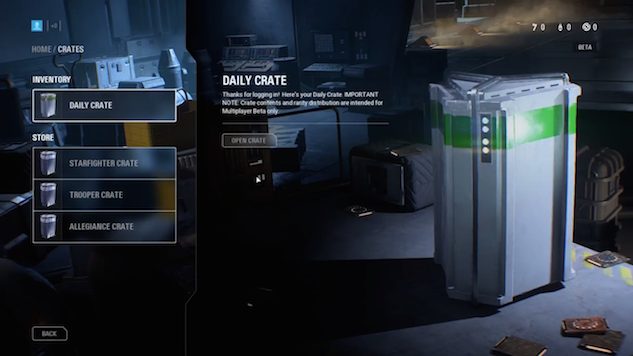The act of opening a loot box is objectively fun—like opening a goodie bag. But once games start charging real money for small, in-game items and whatnot, things begin to get troubling. Then we get to the point where full, $60 games have loot boxes as microtransactions. And now we are to the point where videogames like Middle-earth: Shadow of Mordor and Star Wars: Battlefront II more or less require players to buy loot boxes in order to gain any advantage. The videogame community is growing angry about these developments, but official bodies like the Entertainment Software Rating Board (ESRB) don’t see a problem.
An ESRB spokesperson told Kotaku:
ESRB does not consider loot boxes to be gambling. While there’s an element of chance in these mechanics, the player is always guaranteed to receive in-game content (even if the player unfortunately receives something they don’t want). We think of it as a similar principle to collectible card games: Sometimes you’ll open a pack and get a brand new holographic card you’ve had your eye on for a while. But other times you’ll end up with a pack of cards you already have.
Not necessarily a terrible explanation, but probably not one that players would agree with, either. Still, seeing how the ESRB have both “Real Gambling” and “Simulated Gambling” as ratings categories, players were hoping that the organization would help set a precedent. For now, players will have to put up with the predatory and addictive nature of loot boxes.
We recently wrote about how loot boxes are a troubling sign for the videogame economy, and criticized the use of loot boxes in a list about Battlefront II. For a longer discussion on the overlap between loot boxes and gambling, check out a video from TotalBiscuit below.
